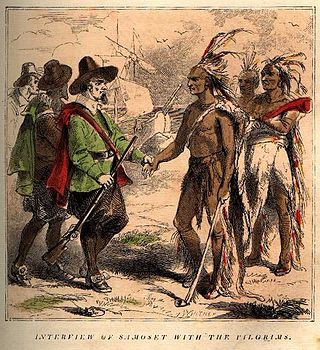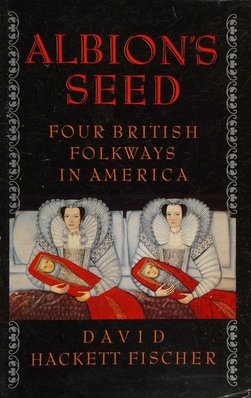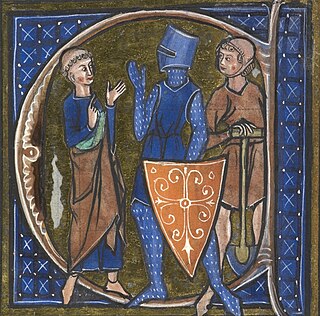The T–V distinction is the contextual use of different pronouns that exists in some languages and serves to convey formality or familiarity. Its name comes from the Latin pronouns tu and vos. The distinction takes a number of forms and indicates varying levels of politeness, familiarity, courtesy, age or even insult toward the addressee. The field that studies and describes this phenomenon is sociolinguistics.
Ms. or Ms is an English-language honorific used with the last name or full name of a woman, intended as a default form of address for women regardless of marital status. Like Miss and Mrs., the term Ms. has its origins in the female English title once used for all women, Mistress. It originated in the 17th century and was revived into mainstream usage in the 20th century.

A gentleman is any man of good and courteous conduct. Originally, gentleman was the lowest rank of the landed gentry of England, ranking below an esquire and above a yeoman; by definition, the rank of gentleman comprised the younger sons of the younger sons of peers, and the younger sons of a baronet, a knight, and an esquire, in perpetual succession. As such, the connotation of the term gentleman captures the common denominator of gentility ; a right shared by the peerage and the gentry, the constituent classes of the British nobility.
Madam, or madame, is a polite and formal form of address for women in the English language, often contracted to ma'am. The term derives from the French madame, from "ma dame" meaning "my lady". In French, the abbreviation is "Mme" or "Mme" and the plural is mesdames. These terms ultimately derive from the Latin domina, meaning "mistress".

The colonial history of the United States covers the period of European colonization of North America from the early 17th century until the incorporation of the Thirteen Colonies into the United States after the Revolutionary War. In the late 16th century, England, France, Spain, and the Dutch Republic launched major colonization expeditions in North America. The death rate was very high among early immigrants, and some early attempts disappeared altogether, such as the English Lost Colony of Roanoke. Nevertheless, successful colonies were established within several decades.

Esquire is usually a courtesy title.
Lady is a term for a girl or woman, with various connotations. Once used to describe only women of a high social class or status, the female counterpart of lord, now it may refer to any adult woman, as gentleman can be used for men. Informal use is sometimes euphemistic.
Mrs. or Mrs is a commonly used English honorific for women, usually for those who are married and who do not instead use another title, such as Doctor, Professor, President, Dame, etc. In most Commonwealth countries, a full stop (period) is usually not used with the title. In the United States and Canada a period is usually used.

The landed gentry, or the gentry, is a largely historical British social class of landowners who could live entirely from rental income, or at least had a country estate. While distinct from, and socially below, the British peerage, their economic base in land was often similar, and some of the landed gentry were wealthier than some peers. Many gentry were close relatives of peers, and it was not uncommon for gentry to marry into peerage. It is the British element of the wider European class of gentry. With or without noble title, owning rural land estates often brought with it the legal rights of lord of the manor, and the less formal name or title of squire, in Scotland laird.

"Young Goodman Brown" is a short story published in 1835 by American writer Nathaniel Hawthorne. The story takes place in 17th-century Puritan New England, a common setting for Hawthorne's works, and addresses the Calvinist/Puritan belief that all of humanity exists in a state of depravity, but that God has destined some to unconditional election through unmerited grace. Hawthorne frequently focuses on the tensions within Puritan culture, yet steeps his stories in the Puritan sense of sin. In a symbolic fashion, the story follows Young Goodman Brown's journey into self-scrutiny, which results in his loss of virtue and belief.
An honorific is a title that conveys esteem, courtesy, or respect for position or rank when used in addressing or referring to a person. Sometimes, the term "honorific" is used in a more specific sense to refer to an honorary academic title. It is also often conflated with systems of honorific speech in linguistics, which are grammatical or morphological ways of encoding the relative social status of speakers. Honorifics can be used as prefixes or suffixes depending on the appropriate occasion and presentation in accordance with style and customs.

In the English language, an honorific is a form of address conveying esteem, courtesy or respect. These can be titles prefixing a person's name, e.g.: Mr, Mrs, Miss, Ms, Sir, Dame, Dr, Cllr, Lady, or Lord, or other titles or positions that can appear as a form of address without the person's name, as in Mr President, General, Captain, Father, Doctor, or Earl.

Albion's Seed: Four British Folkways in America is a 1989 book by David Hackett Fischer that details the folkways of four groups of people who moved from distinct regions of Great Britain (Albion) to the United States. The argument is that the culture of each of the groups persisted, to provide the basis for the political culture of the modern United States. Fischer explains "the origins and stability of a social system which for two centuries has remained stubbornly democratic in its politics, capitalist in its economy, libertarian in its laws and individualist in its society and pluralistic in its culture."

The History of Little Goody Two-Shoes is a children's story published by John Newbery in London in 1765. The story popularized the phrase "goody two-shoes" as a descriptor for an excessively virtuous person or do-gooder.

Venetian ceruse, also known as blanc de ceruse de Venise and Spirits of Saturn, was a 16th-century cosmetic used as a skin whitener. It was in great demand and considered the best available at the time, supposedly containing the best quality white lead sourced from Venice, the global merchant capital at the time. It is similar to the regular ceruse, although it was marketed as better, more exclusive and more expensive than the regular ceruse variant. The regular ceruse white pigment is a basic lead carbonate of chemical formula 2 PbCO
3·Pb(OH)
2 while the mineral cerussite is a simple carbonate of lead.
Goodman was once a polite term of address, used where Mister (Mr.) would be used today. A man addressed by this title was, however, of a lesser social rank than a man addressed as Mister. Compare Goodwife.
A girlfriend is a woman who is a friend, acquaintance or partner to the speaker, usually a female companion with whom one is platonically, romantically, or sexually involved. In a romantic context, this normally signifies a committed relationship where the individuals are not married. Other titles, for example "wife" or "partner", usually signify that the individuals are legally married. The analogous term for men is "boyfriend", which almost always implies romantic involvement.

Gentry are "well-born, genteel and well-bred people" of high social class, especially in the past. Gentry, in its widest connotation, refers to people of good social position connected to landed estates, upper levels of the clergy, or "gentle" families of long descent who in some cases never obtained the official right to bear a coat of arms. The gentry largely consisted of landowners who could live entirely from rental income or at least had a country estate; some were gentleman farmers. In the United Kingdom, the term gentry refers to the landed gentry: the majority of the land-owning social class who typically had a coat of arms but did not have a peerage. The adjective "patrician" describes in comparison other analogous traditional social elite strata based in cities, such as the free cities of Italy and the free imperial cities of Germany, Switzerland, and the Hanseatic League.
Miss is an English language honorific typically used for a girl, for an unmarried woman, or for a married woman retaining her maiden name. Originating in the 17th century, it is a contraction of mistress. The plural of Miss is Misses or occasionally Mses.
Mister, usually written in its contracted form Mr. or Mr, is a commonly used English honorific for men without a higher honorific, or professional title, or any of various designations of office. The title Mr derived from earlier forms of master, as the equivalent female titles Mrs, Miss, and Ms all derived from earlier forms of mistress. Master is sometimes still used as an honorific for boys and young men.









